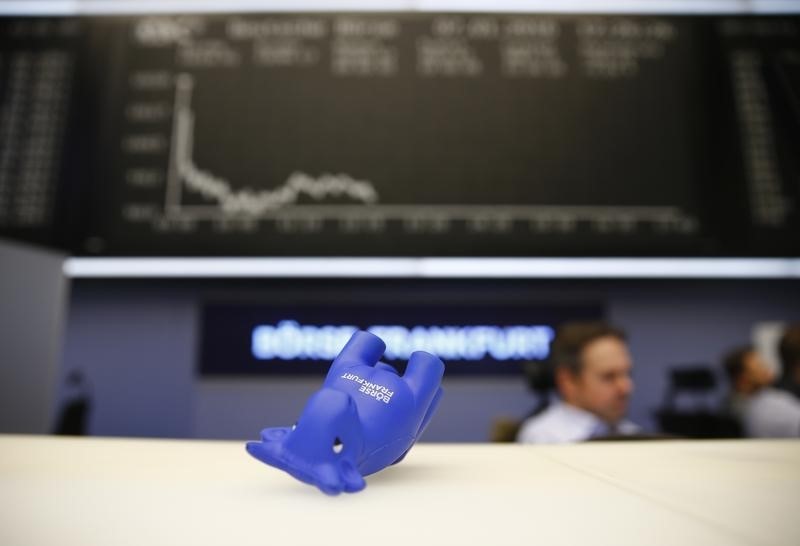By Peter Nurse
Investing.com - European stock markets are seen edging higher at the open Friday, partially rebounding after sharp losses in the previous session. Gains could be short-lived though, with investors anxious over the economic impact of the second wave of the Covid-19 virus as well as the ongoing Brexit talks.
At 2:10 AM ET (0610 GMT), the DAX futures contract in Germany traded 0.1% higher, CAC 40 futures in France climbed 1% and the FTSE 100 futures contract in the U.K. rose 0.8%.
European stock indices posted their largest losses in more than three weeks on Thursday, with the pan-Europe Stoxx Europe 600 index largely erasing all its gains for October and dropping the most since Sept. 21.
Friday is likely to see a small bounce, but European equities have generally lost momentum as the pandemic, an impasse in U.S. stimulus talks and the potential for the U.K’s trade negotiations with the European Union to end badly weigh on investor confidence.
Europe seems to be losing the fight to keep their economies open as the Covid-19 virus spreads. Starting this weekend, Londoners will be banned from mixing with other households, and residents of Paris and other major French cities face a curfew for four weeks.
Additionally, although German Chancellor Angela Merkel reported "some movement" on Thursday in talks between European Union leaders about a potential Brexit agreement, the two sides have barely made any progress this week and time is running very short.
In corporate news, German carmaker Daimler (DE:DAIGn)r is likely to be in focus Friday after it posted forecast-beating third-quarter results late on Thursday, citing a faster-than-expected market recovery and strong business in September.
LVMH (PA:LVMH) said strong growth at its biggest fashion brands buoyed revenue in the third quarter, partly offsetting steep declines in other segments of the luxury group that have been hit hard by the coronavirus pandemic.
Oil prices weakened Friday amid continued concerns about stagnating demand as a spike in Covid-19 cases in Europe and the United States hits economic activity in two of the world's biggest fuel consuming regions.
At the same time, a meeting Thursday of a technical committee of the Organization of the Petroleum Exporting Countries and allied oil producers, a group known as OPEC+, did little to allay fears that these major producers will move ahead with plans to ease their supply cuts despite the tepid demand.
OPEC+ is set to reduce its current supply cuts of 7.7 million barrels per day by 2 million barrels a day in January.
Data from the U.S. Energy Information Administration released on Thursday showed a 3.818 million-barrel draw in crude oil supplies last week, but this did little to alleviate the gloom.
U.S. crude futures traded 0.8% lower at $40.62 a barrel, while the international benchmark Brent contract fell 0.9% to $42.78.
Elsewhere, gold futures traded flat at $1,909.50/oz, while EUR/USD traded flat at 1.1709.
